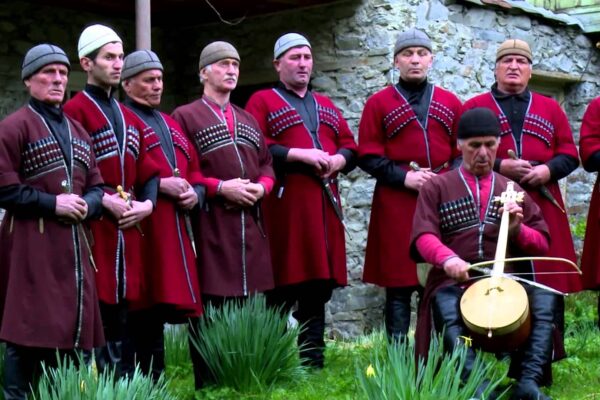Georgia has a rich and complicated history spanning two millenia – everything from adopting Christianity in the 4th century AD, to winning epic land battles and having a woman king can be found in Georgian history books. But when we talk about modern times, it becomes increasingly difficult to keep track of all the happenings – once Russia absorbed Georgia into the Soviet Union, it has effectively hindered the country’s development. Despite being independent since 1992, Georgia is still reaping the harvest of Soviet occupation. We have already reviewed key events in Georgia’s recent history in this article last year, so now we would like to pick up where we left off – let’s see what has happened in Georgia for the past decade.
Association agreement with the EU
Since its independence from the USSR, Georgia has been in conversations with European partners, to reclaim its place among the members of the European Union. A step towards that goal was taken in 2014, when Georgia signed an association agreement with the EU. The agreement introduced new economic regulations that gave Georgia better access to the European trading market.
Visa-free travel to EU countries
The framework of the association agreement was not limited to economic benefits. By March 2017, Georgian citizens were granted visa-free travel to 26 states in the Schengen Area. That’s when Georgians said goodbye to costly and complicated visa applications – all they need to do now is grab their passports, book tickets and enjoy a getaway in Europe.
Georgia elects the first woman president

Photo Source: councilwomenworldleaders.org
Salome Zourabichvili, born to a Georgian immigrant family in France, was an experienced politician and diplomat before participating in the 2016 presidential elections. Although she ran as an independent candidate, she was openly endorsed by the ruling Georgian Dream party. Despite becoming Georgia’s first woman president, Zourabichvili’s role is mostly symbolic, since the president only retains representative duties in the parliamentary state. Since her election, Zuurabichvii has become vocal about Georgia’s European aspirations, criticizing her former endorser, the ruling party and its questionable decisions.
Decriminalization of marijuana

Photo Source: Reuters
Georgia has long been known for its draconic laws on substance use. In 2018, Human Rights Watch reported on unfairly long prison sentences, derogatory search practices and numerous other violations when it came to recreational drug use. In the same year, several local movements organized large protests against crackdowns on night clubs and other places where drug use was alleged. Accompanied with live music in front of Tbilisi’s parliament building, the protest became known as Georgia’s Rave Revolution – by the end of the summer 2018, the constitutional court ruled in favor of legalizing possession and use of marijuana. Yet penalties are still in place for cultivation and sale of the drug.
Gavrilov’s Night

Mako Gomuri – the girl, who lost her eye during the manifestation. Photo Source: metronome.ge
Despite Georgia’s apparent involvement with the EU, Russia had no intention of loosening its grip on the country’s ruling party, the Georgian Dream. The grip became apparent in 2019, when a member of the Russian Duma made an unexpected appearance at Georgia’s parliament. Sergey Gavrilov, member of the XX party was seen lounging in the seat of the chairman Irakli Kobakhidze. This symbolic seizure of Georgia’s sovereignty did not sit well with ordinary Georgians and within a couple of hours Rustaveli Avenue was flooded by angry protesters reminding the government of the ongoing RUssian occupation and aggression. The government retaliated by using rubber bullets and water cannons. Around 250 people were injured, among them two protesters who lost an eye to rubber bullets.
Georgian Dream gets reelected
A tense year followed Gavrilov’s Night, with several position changes in the government, but no substantial change in the policy. The ruling party failed to introduce a proportional system to the 2020 parliamentary elections, effectively barring smaller opposition parties from entering the parliament. As a result, the Georgian Dream maintained the legislative majority, despite accusations of election fraud from local and international organizations.
Protests follow the Foreign Agents Law

Photo Source: New York Times
Early into 2022 the ruling party introduced the now-controversial law on Agents of Foreign Influence – a law that mirrors similar legislation in Russia.It aimed to d to regulate foreign-funded non-governmental organizations (NGOs) operating in Georgia.All the NGOs receiving 20% or more of their funding from abroad would be required to disclose their financial sources and report their activities to a government agency. The government said the measure would increase financial transparency in the country, but critics argued that it could be used to suppress dissent and curb the influence of foreign-backed organizations in the country’s political landscape. The legislation could be used to target NGOs critical of the government or advocating for human rights and democracy – all of which had already happened in Russia since the introduction of a similar law.
In response to the proposed legislation, thousands of people took to the streets of Tbilisi and other cities in Georgia to protest. Demonstrators called for the government to withdraw what they called the Russian Law, arguing that it violated democratic principles and would undermine civil society. The scale of protests, paired with pressure from European and US partners made the government take back the proposal and the law was shelved for the time being.
Georgia is granted EU candidacy status

Photo Source: civil.ge
After the start of Russia’s war in Ukraine, the European Union opened talks of expedited membership to countries threatened by Russia – Ukraine, Georgia and Moldova. In late 2023, the EU opened membership talks with Ukraine and Moldova, while granting Georgia a candidacy status. The status comes with criteria Georgia would have to fulfill to align with the democratic principles of the EU. Although actual membership might take decades, the candidacy was largely viewed as another confirmation of the civil society’s aspiration for more European integration, as well as a clear message to the government to remain on the democratic path.
Georgia qualifies for EURO 2024

2024 became a historic year for Georgia, when the country qualified for its first major tournament in football. In June 2024, the Georgian national football team will participate in the continent’s main football championship, UEFA Euro 2024. The team will face Czechia, Portugal and Türkiye in the group stage.
The historic win came after a prolonged dry spell in Georgian football, which saw its last major trophy in 1981, when Dinamo Tbilisi – competing under the Soviet flag – won the European Cup Winners’ Cup, which later became known as the Super Cup. You can read more about Georgia’s endless love of football here, but for now, it suffices to say that the country celebrated in style, with spectators first storming the pitch after the decisive game against Greece at home, and then taking to the streets and cheering for its heroes all night.
The Foreign Agents Law makes a comeback

Photo Source: publika.ge
The euphoria of a historic win was cut short for many Georgians when the ruling Georgian Dream reintroduced the notorious Russian Law for consideration at the parliament in the spring of 2024. Many international partners have issued warnings that the law is against democratic standards, including EU representatives who stated that the law would be against EU standards and could harm both visa-free travel and candidacy talks for Georgia. Yet the government has for now been proceeding with legislative steps to bring the law into action. The parliamentary sessions are accompanied with street demonstrations across the capital, where hundreds of thousands of Georgians are once again voicing their desire for a future in Europe. On May 11, around 300 thousand Georgians gathered in the old town. Further demonstrations are planned in the near future. A lot will be decided this fall, when Georgians will once again go to the ballots in the parliamentary election that could see the change of power in the country.









